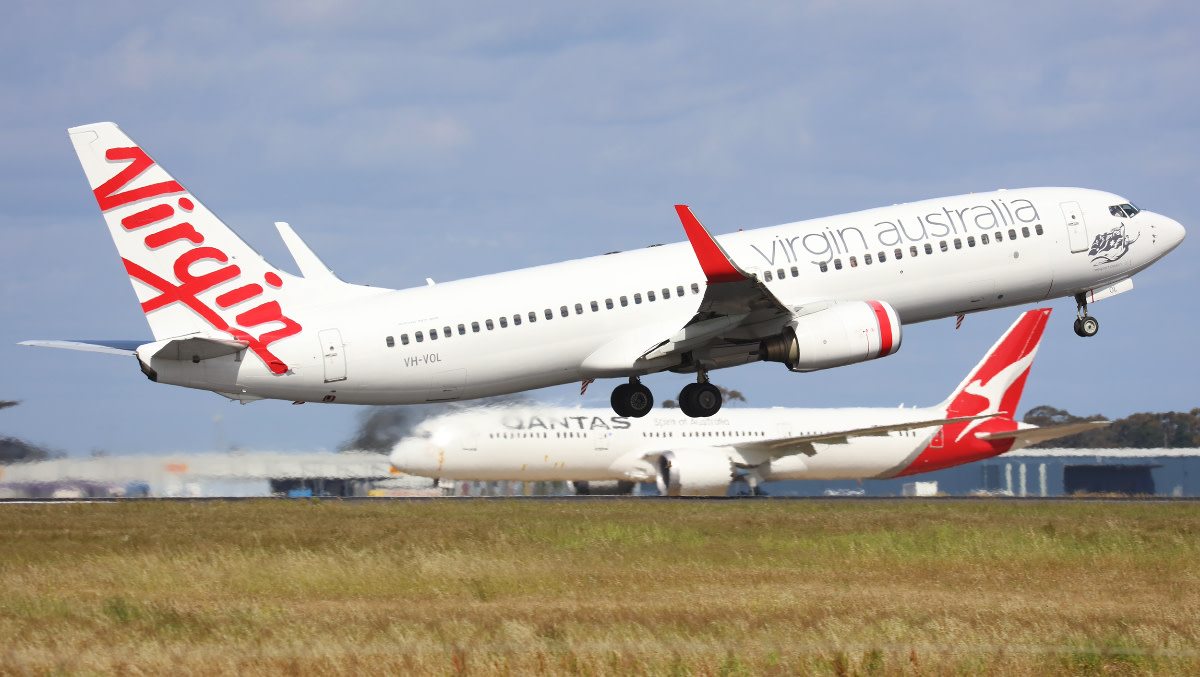
The Australian Airports Association (AAA) wants to see an ACCC inquiry into alleged anti-competitive behaviour in the domestic aviation market.
In a significant intervention as part of its submission responding to the Aviation Green Paper, the peak body for airports appeared to accuse domestic airlines of slot hoarding and endorsed a Senate inquiry’s recommendation for the ACCC to look into the sector.
“Following the pandemic, domestic aviation has become one of the most concentrated markets in Australia. Qantas Group and Virgin Australia account for 95 per cent of market share in the domestic aviation market. Compared to other sectors of the economy, the domestic aviation market is highly concentrated,” the submission read.
“Since the pandemic disruptions there has been a notable drop in service quality in the domestic market, as measured by the frequency of cancellations and delays and record high airfares. There are record levels of complaints against airlines.”
The submission pointed to high domestic cancellation rates, particularly on routes such as Sydney to Canberra, as evidence of the negative effects of the aviation duopoly.
“This activity of frequent cancellations gives rise to ‘slot hoarding’ where airlines game the slot system in order to freeze out competition from other airlines,” it read.
Other recommendations in the submission include the implementation of the Harris Review’s advice regarding Sydney slots; an independent Airline Ombudsman; more funding for regional airports; a “viable and scalable” domestic sustainable aviation fuel (SAF) industry; and a review of current aviation agencies including CASA and Airservices Australia.
AAA chief executive James Goodwin has called the proposals a “feasible and proportional response” to the current challenges facing the sector, and said they would increase confidence and investment through to 2050.
“We have set out a positive and collaborative reform agenda to improve competition and capacity and reduce aviation emissions, while working to improve disability access, supporting regional airports and streamlining planning processes,” he said.
“This submission is the culmination of the views of hundreds of people at airports across Australia having their say on the future of the sector during what will be a period of significant change.
“Australia’s airports must remain a vital part of Australia’s economic and social fabric. Airports are critical infrastructure, providing services that generate substantial employment and increase connectivity within Australia and internationally through trade and tourism.”
Under the current 80–20 rule, an airline can keep a take-off slot at Sydney Airport indefinitely as long as it uses it at least 80 per cent of the time.
The slot rules are necessary because two aircraft cannot simultaneously take off on the same runway, but have led to accusations that major carriers are effectively gaming the system to take advantage, though both Qantas and Virgin have vehemently denied any wrongdoing.
Transport Minister Catherine King signalled in September that the slots issue may be examined before the release of the white paper next year.
- SEO Powered Content & PR Distribution. Get Amplified Today.
- PlatoData.Network Vertical Generative Ai. Empower Yourself. Access Here.
- PlatoAiStream. Web3 Intelligence. Knowledge Amplified. Access Here.
- PlatoESG. Carbon, CleanTech, Energy, Environment, Solar, Waste Management. Access Here.
- PlatoHealth. Biotech and Clinical Trials Intelligence. Access Here.
- Source: https://australianaviation.com.au/2023/12/airports-peak-body-says-airlines-are-hoarding-slots/



